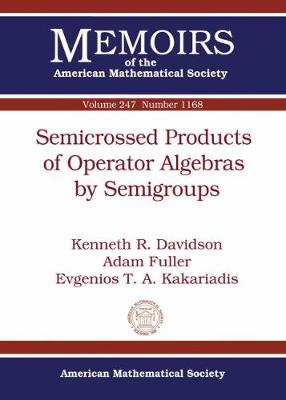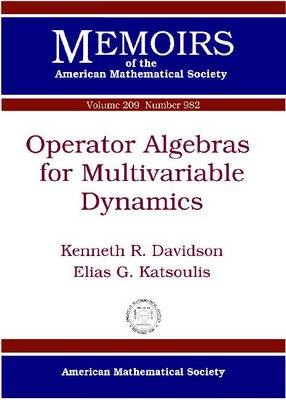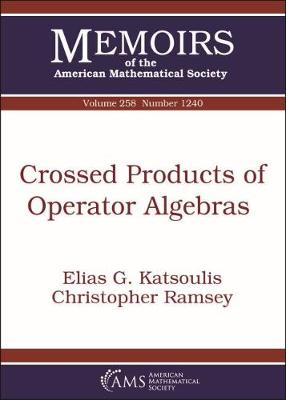Memoirs of the American Mathematical Society
3 total works
Semicrossed Products of Operator Algebras by Semigroups
by Kenneth R. Davidson, Adam Fuller, and Evgenios T.A. Kakariadis
Published 1 May 2017
The authors examine the semicrossed products of a semigroup action by $*$-endomorphisms on a C*-algebra, or more generally of an action on an arbitrary operator algebra by completely contractive endomorphisms. The choice of allowable representations affects the corresponding universal algebra. The authors seek quite general conditions which will allow them to show that the C*-envelope of the semicrossed product is (a full corner of) a crossed product of an auxiliary C*-algebra by a group action. Their analysis concerns a case-by-case dilation theory on covariant pairs. In the process we determine the C*-envelope for various semicrossed products of (possibly nonselfadjoint) operator algebras by spanning cones and lattice-ordered abelian semigroups.
Operator Algebras for Multivariable Dynamics
by Kenneth R. Davidson and Elias G. Katsoulis
Published 23 December 2011
Let $X$ be a locally compact Hausdorff space with $n$ proper continuous self maps $\sigma_i:X \to X$ for $1 \le i \le n$. To this the authors associate two conjugacy operator algebras which emerge as the natural candidates for the universal algebra of the system, the tensor algebra $\mathcal{A}(X,\tau)$ and the semicrossed product $\mathrm{C}_0(X)\times_\tau\mathbb{F}_n^+$. They develop the necessary dilation theory for both models. In particular, they exhibit an explicit family of boundary representations which determine the C*-envelope of the tensor algebra.|Let $X$ be a locally compact Hausdorff space with $n$ proper continuous self maps $\sigma_i:X \to X$ for $1 \le i \le n$. To this the authors associate two conjugacy operator algebras which emerge as the natural candidates for the universal algebra of the system, the tensor algebra $\mathcal{A}(X,\tau)$ and the semicrossed product $\mathrm{C}_0(X)\times_\tau\mathbb{F}_n^+$. They develop the necessary dilation theory for both models. In particular, they exhibit an explicit family of boundary representations which determine the C*-envelope of the tensor algebra.
Crossed Products of Operator Algebras
by Elias G. Katsoulis and Christopher Ramsey
Published 1 April 2019
The authors study crossed products of arbitrary operator algebras by locally compact groups of completely isometric automorphisms. They develop an abstract theory that allows for generalizations of many of the fundamental results from the selfadjoint theory to our context. They complement their generic results with the detailed study of many important special cases. In particular they study crossed products of tensor algebras, triangular AF algebras and various associated C$^*$-algebras. They make contributions to the study of C$^*$-envelopes, semisimplicity, the semi-Dirichlet property, Takai duality and the Hao-Ng isomorphism problem. They also answer questions from the pertinent literature.


